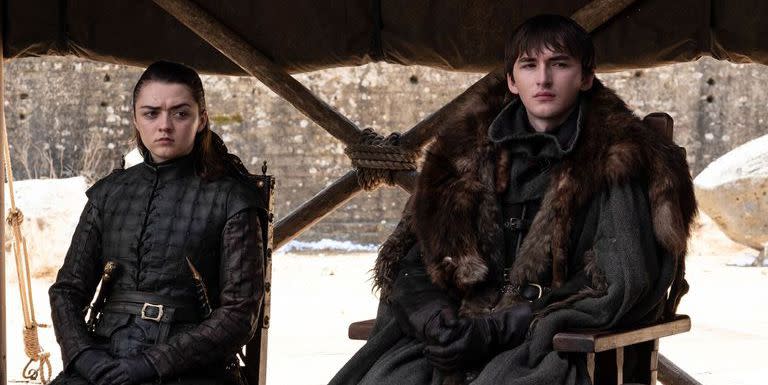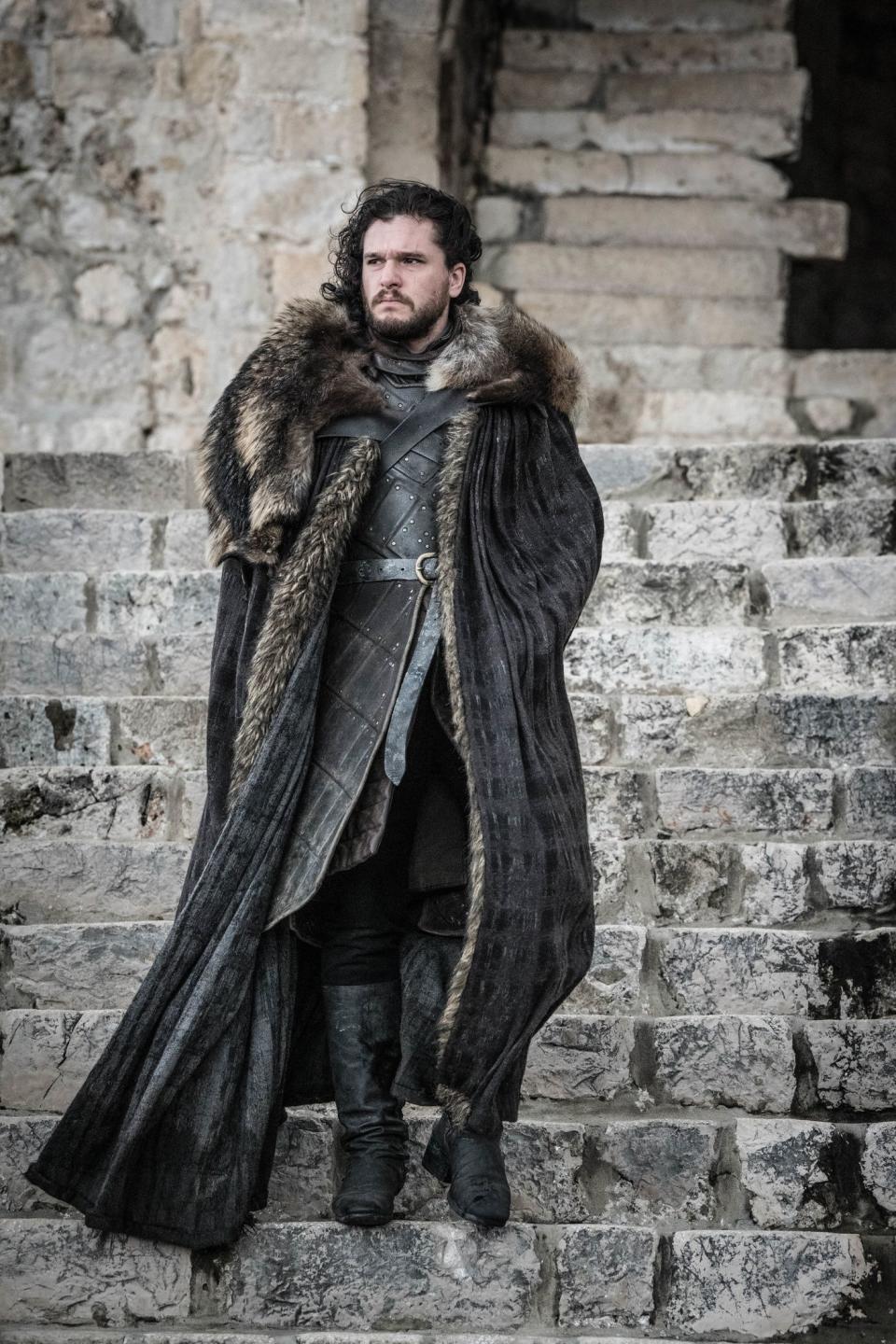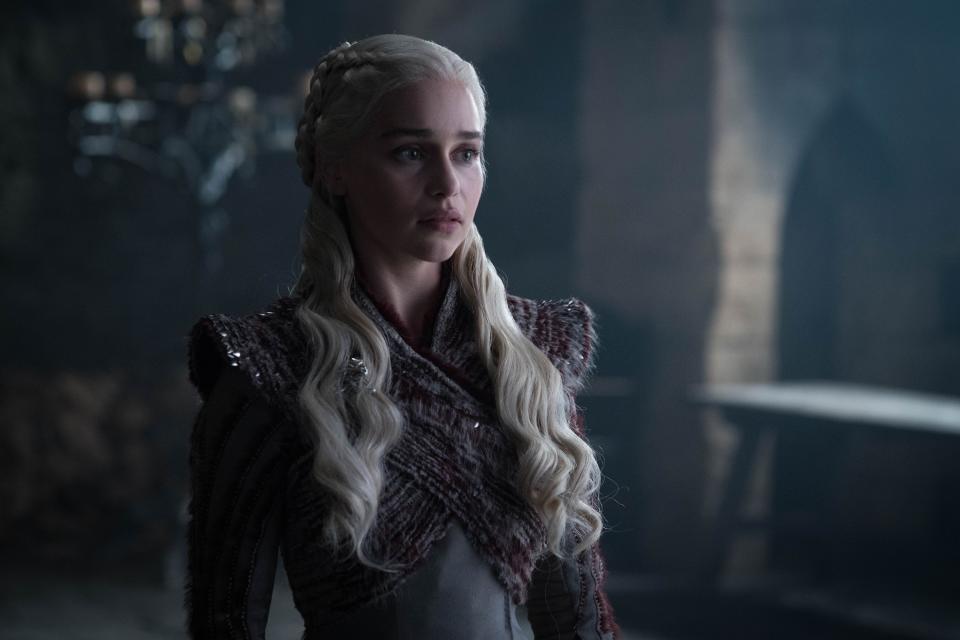Even Classicists Hated the Game of Thrones Finale

On Sunday night, after eight years and 73 episodes, Game of Thrones, HBO's epic saga of good versus evil, fire versus ice, the Lannisters and the Starks and the Targaryens, came to an end with an episode that included a not-so-shocking betrayal, tortured monologues, and one very upset dragon.
Like many a series finale, especially on this network, this one is destined to be argued about for a while–at least until the the nerds refocus their attention on David Benioff and D. B. Weiss's take on Star Wars. As a matter of storytelling, the finale managed to even upset classicists like T&C contributor-and GoT superfan-Daniel Mendelsohn, who suggests the writers should have brushed up on how other classic epics, like the Iliad and the Odyssey, drew to a close.
How did you feel about last night's finale?
Unlike many people, I had been very satisfied with the final season-until last night. I felt the structure of the season overall was perfect: having the great supernatural battle between good and evil take place early on, in Episode 3, and leaving the other great conflict between good and evil-this time on the human level-for the climax. Throughout the series, there has always been a twinning between the real and supernatural worlds, with the same themes-power, loyalty, duty, politics, family-enacted on both tiers. But in the end, it was the human dramas that mattered more. The double climaxes of this season, those blockbuster battles in Episodes 3 and 5-“ice” in the battle with the Night’s King, “fire” in the destruction of King’s Landing-fabulously enacted that ongoing mirroring between fantasy and reality.

But I really felt that last night's finale failed to do what the ending of an epic needs to do, which is to bring not only the story lines but the overarching themes to a powerful and meaningful conclusion. Basically what you got last night was nice glimpses into the futures for the surviving Stark children, Sansa, Arya and Jon Snow-but little else. The scene in which the new council chooses Bran as king was an appallingly flat and unpersuasive way to bring to a conclusion the show's otherwise very sophisticated ongoing engagement with politics and power. (Among other things, would Grey Worm really have stood around acquiescing to the new disposition?)

My biggest complaint has to do with the death of Daenerys Targaryen, which in many ways should have been the real climax of the whole series because it underlines how power corrupts, and of the ruthless choices politics imposes. As it played out, it was a total flatline-the issue of Dany’s collapse into power-madness was “dispensed with,” so to speak, rather than really worked out.
Is there anything you did like about the finale?
I cracked up when the council of rulers of the new Six Kingdoms momentarily contemplated Samwell’s suggestion that the people should rule-and then all burst out laughing. One thing I think this series has done beautifully is to represent, in a popular entertainment, the realities of politics and power: you knew that they knew what they were doing back in Season 1, when Eddard Stark lost his head because of his political naiveté and foolishness.
The series as a whole has been (especially for American TV) bracingly unsentimental about how power is achieved and what it does to people, winners and losers both. And so I loved how the direction of that scene dangled a very sentimental possibility before the audience-the wheel has been broken! the people will rule!-only to smirk at it, which is just right. These characters would never have entertained the idea of popular rule-except for Samwell, and he’s an intellectual, so he doesn’t count. Perfect!
If you were in charge of the writers' room, what would you have made sure your staff watched and read (or re-watched and re-read) before embarking on this episode?
I know I’m biased, but if you really want to see how epics should end-how both the narrative and the themes achieve a powerful, fully worked-out conclusion (rather than just an "ending”), read The Iliad or The Odyssey. Preferably both. When you finish an epic, you should feel a tug of sadness: because the world you have been visiting-and epics are entire worlds unto themselves, that’s what sets them apart from other genres-has been “completed:" there are no dangling ends, no further possibilities, no future, really.

In other words, the equation has been fully worked out. I didn’t feel this last night-there was just a finish line but no sense of “done-ness.” You felt that they’d just lurched to the finish line.
Is there a particular alternate ending you'd wished for?
I understand why the writers thought Jon had to be the one to kill Dany: his action exemplified the supreme sacrifice of love for duty, of the personal for the political. But I feel that for Arya to have killed her would have been more satisfying thematically. Arya had always planned to kill Cersei, as we know; that was going to be the climax of her murderous revenge and the fulfillment of her training as an assassin. But the interesting fact is that Dany’s descent into tyranny turned her into a double of Cersei by the end of the series.

And so for Arya to have killed her would have been a nice way of signaling the genuinely tragic result of Dany’s moral and political disintegration: that in the end she is not the opposite but the mirror image of the cruel tyrant she set out to depose. As I argued in a long essay I wrote for the New York Review of Books about the series back when they’d finished Season 2, the great and admirable focus of the show has always been its female characters: their evolution from objects of male lust and power games into powerful figures on their own. Overall, Game of Thrones is a great feminist epic. So it would have been very satisfying for her to be the one to dispatch Dany-perhaps even more satisfying than it was to see her kill the Night’s King.
('You Might Also Like',)


